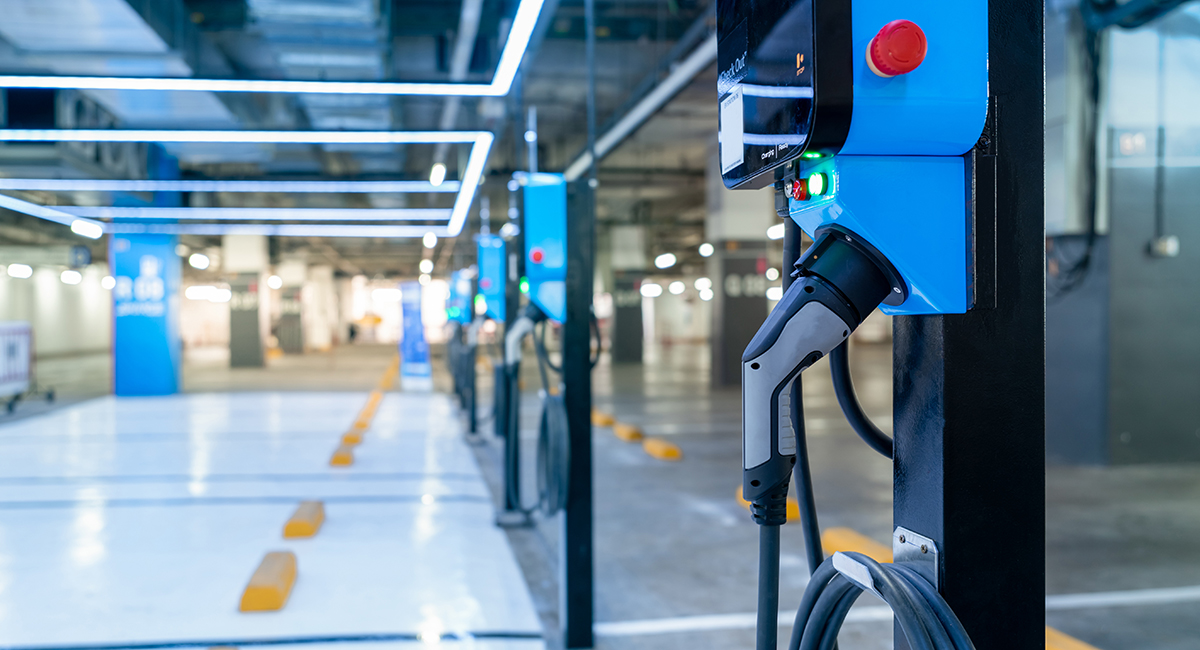Ever since the dawn of cars, there has been a booming roadside economy dedicated to refuelling drivers on their journeys–whether that’s by filling up a car with petrol, picking up a bite to eat, or using the restrooms.
There are hundreds of businesses built around petrol and gas stations, but with the advent of electric vehicles (EVs), this roadside economy is ripe for disruption. As public charging infrastructure grows in scale and reach, drivers will no longer be limited to rest stops and convenience stores when they need to recharge their vehicles.
With fast charging points taking as little as half an hour to get a vehicle ready to go again, there’s a huge opportunity for retailers of all sizes to reach new customers–by becoming part of the growing economy around public EV charging infrastructure.
Across Europe, charging stations are already appearing outside hotels, restaurants, bars, and even supermarkets as retailers fight to turn travellers into customers. The continent leading the world when it comes to the adoption of electric vehicles by producing more than a quarter of EVs worldwide.
According to McKinsey, there were roughly 375,000 charging points across Europe in 2021, and this number has only grown in 2022. In France, for example, around 400 public chargers are being installed per week. With an EU report predicting that the 27 member states will need 3.4 million public charging points by 2030, this is a huge growth market and a way for retailers to easily generate passive income–as well as attract new customers.
 But at this early stage in the growth of EVs, it’s difficult for businesses to grasp the full scale of potential available to them.
But at this early stage in the growth of EVs, it’s difficult for businesses to grasp the full scale of potential available to them.
Using advanced logistics technology, Local Eyes is part of a number of organisations mapping EV charging stations around the world. We generate thousands of data points every day which can provide actionable insights into the scale of this burgeoning market, whether through vehicular traffic analytics, foot traffic, and audience segmentation.
We’re already working with some of the world’s top automotive companies to do this. Volkswagen is currently Europe’s largest installer of EV charging points, and the parent company of Porsche–who are partnered with Local Eyes on a project to build 1000 charging stations by 2025.
According to Porsche deputy chairman Lutz Meschke, Porsche plans to integrate EV charging points with amenities such as coffee bars, food, and remote working spaces. Its first stations are scheduled for construction in Germany, Switzerland, and Austria next year.
Meschke said: “It’s not just about charging, it’s also to get more convenience in the direction of our customers. And that’s very important for us that we not only focus on the electrification of our cars, but also about the customer journey beyond the car.”
What’s more, our work with EV charging points is fully integrated with our other locations solutions, powered by HERE Maps. This includes comprehensive fleet management for logistics companies reliant on EVs, as well as location intelligence to empower geomarketing towards individuals who regularly use EV charging points. These capabilities give businesses the ability to leverage location data and directly target regular visitors to EV charging stations with tailored products and suggestions.
Local Eyes B.V. is a leading reseller and integrator of geospatial technologies and data that has been contributing to its client’s success for the past 10 years by optimizing their decision-making and logistic processes.
If you’re interested in learning more about how Local Eyes is working with retailers to provide EV infrastructure intelligence, get in touch today.



